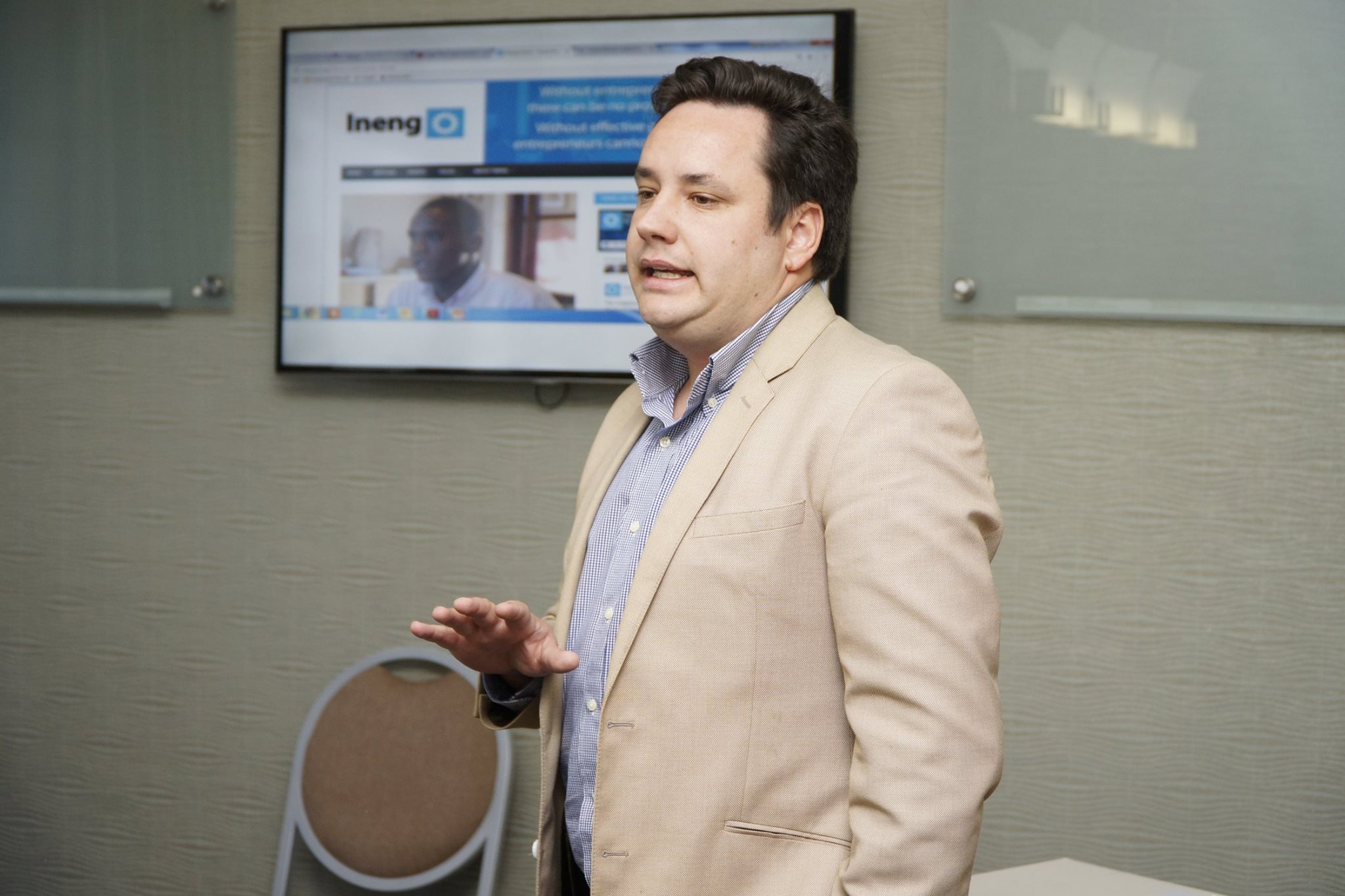Acton University, with alumni from over 100 countries worldwide, inspires many to defend liberty and promote virtue throughout the world. Garreth Bloor, a leader in the Acton Institute network and AU alumnus, serves as an inspiration as he has dedicated much of his life to defending freedom globally.
Bloor first attended Acton University in 2006 when he was living in South Africa studying at the University of Cape Town, but his fight to defend liberty started at a much younger age. In his youth, he witnessed how apartheid legislation in Sub-Saharan Africa purposefully excluded a large group of people from an open market economy, and set forth to dedicate his life towards enabling flourishing and creating a healthy environment for entrepreneurs through economic freedom. Since attending Acton University, he has engaged in the intersection of morality and the free economy, inspired by the conversation at Acton. Most recently, Garreth made the move to Toronto in 2017 where he is working hard to advance principles that Acton cares deeply about, such as free trade and personal responsibility.
I had the chance to interview Bloor last month about his current work as the President of the Canada-Africa Chamber of Business. He shared how his early career under Temba Nolutshungu, a leader in the South African Anti-Apartheid movement, propelled him to promote an open market and seek better environments for entrepreneurs. I find his story to seek freedom and uphold human dignity an inspiring one, and hope you do so, too.
Oetting: How did you first become acquainted with the Acton Institute? What was the first Acton event that you attended?
Bloor: In 2006 I participated in Acton University as a freshman studying at the University of Cape Town.
Growing up in South Africa, when and how were you introduced to classical liberalism (or the principles of individual liberty and personal responsibility) and how did that inform your career path?
My introduction to classical liberalism was through the work of Temba Nolutshungu, an anti-apartheid leader who was deeply involved in the negotiations toward South Africa’s constitutional democracy, especially property rights for all (realised when I was six years old in the mid-90s). Around that time and during the years ahead, I travelled on weekends with my dad, a club rugby coach, to various parts of my home province, seeing at a young age the conditions to which millions had been unjustly relegated.
Mr. Nolutshungu would later take me under his wings as a mentor, after we engaged at a conference in Kenya on economic freedom in Sub-Saharan Africa when I was still a teenager. He has played an important role in my life ever since, particularly when working on regulatory reform in local government, where I was supported in leading the repeal of over 300 outdated pieces of legislation, almost all of which had been created under apartheid; based on the premise of excluding millions from an open market economy under their variant of national socialism, rightly declared a crime against humanity.
As an entrepreneur, and someone who has spoken on entrepreneurship around the world, what would you say the role of the entrepreneur is in cultivating a free society?
The entrepreneur creates communities of free people through their businesses, which in turn constitutes part of the fabric of the civic life that is vital to free societies.
Entrepreneurs take risks many others ordinarily would not, often putting their homes and entire life savings at risk in pursuit of a business goal for which there is never a guarantee of success.
The conditions required for real entrepreneurship which grow businesses in response to the needs of the market, are conditions that are important for overall freedom for all people: open markets, the rule of law and limits on the discretionary power of government, which all too often violate human rights and the ability to earn a living.
What is the mission of the Canada-Africa Chamber of Business? What role does your organization play in advancing free enterprise on a global scale?
The Canada-Africa Chamber of Business exist to accelerate trade and investment between Canada and Africa. Not all our members are African or Canadian by any stretch, but hail from across North America. With Canada’s free trade deals and positive reputation globally, Canada is an excellent base for doing business in my view. Canada went from five trade deals to 52 in a decade.
How has the Acton Institute impacted your career and the work you have done first in South Africa and now at the Canada-Africa Chamber of Business?
Too often the case for economic development is made in utilitarian terms. Yet there is much more than simply profit-maximization in advancement of truly free and just societies. Acton brings together thinkers from across various faith and philosophical traditions to consider the moral and ethical dynamics in the key economic questions of the day. I know of no other organization that has brought together discussions on the nexus of the common good, human dignity and economic freedom as successfully as the Acton Institute.
Finally, what projects are you currently working on and how can those in the Acton network interested in your work collaborate with you?
I am currently conceptualizing a policy institute to look at how Canadian and African think tanks can cooperate to promote an enabling environment for economic development, sharing best practice in respective countries and regions. A particular focus will be the role of legislation at the local government level.

